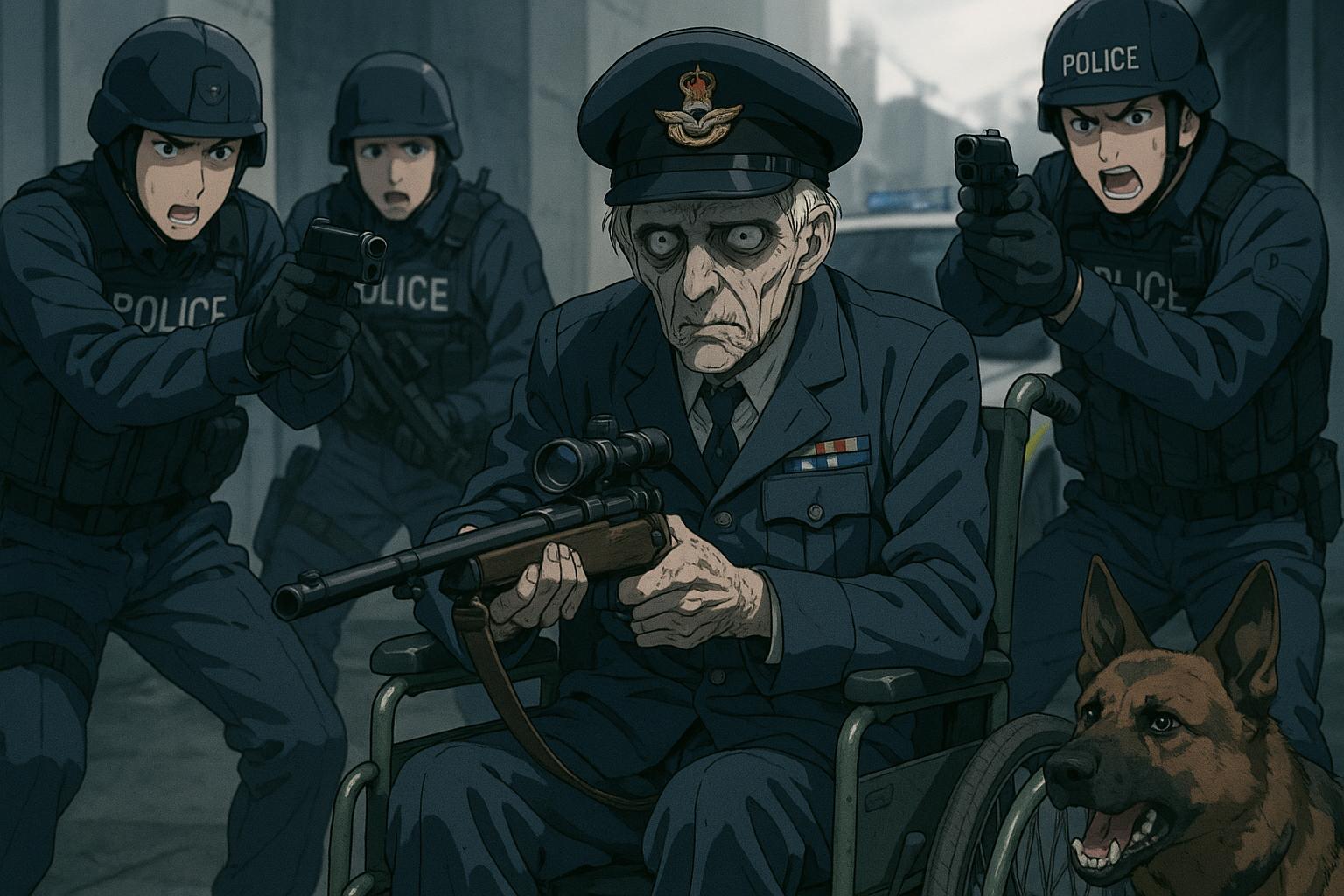An RAF veteran, Peter Donaldson, found himself at the centre of a tense court case following a harrowing incident that unfolded in Bangor. Accused of firearms offences, Donaldson pointed a realistic-looking imitation firearm at armed police, reportedly demanding to be shot in what has been described by the presiding judge as a case of "suicide by cop." During the standoff that lasted nearly two hours, armed officers were fired upon multiple times, although no one was injured.
District Judge Mark Hamill characterised the situation as particularly troubling, emphasising that Donaldson was fortunate to be alive given the nature of the confrontation, which placed both him and the officers in considerable danger. The ordeal began when Donaldson entered the Quick Cabs office on a Sunday evening and instructed the staff to call emergency services. He insisted that while he had a gun, he wouldn’t harm anyone, highlighting his military service in potentially hostile environments. This ironic twist escalated swiftly when he aimed the weapon at police officers outside, prompting them to react in self-defence.
The standoff concluded dramatically when a police dog apprehended Donaldson, allowing officers to disarm him. The firearm turned out to be a replica Glock capable of firing only ball bearings. A subsequent search of his home revealed not only additional imitation weapons but also a crossbow rigged to fire at the user, alongside a suicide note.
During his court appearance, Donaldson, appearing in a wheelchair due to injuries sustained from the dog bite, expressed his understanding of the charges against him. Detective Constable Martin, testifying on the case, noted that, although authorities recognised Donaldson's difficult situation, they opposed any bail due to concerns over the potential for further incidents. The officers were wary not only for their safety but also for Donaldson’s, fearing he may attempt to repeat such dangerous behaviour.
A deep dive into Donaldson’s background revealed a troubled history. Having served in the RAF from 2001 to 2006, he endured two tours in Iraq and was medically discharged due to an injury that required extensive pain management. According to him, the medications he was prescribed caused distressing side effects, compelling him to cease taking them, leading to a deterioration in his mental health over time. His doctor had advised a gradual withdrawal from the medication, but Donaldson opted to stop entirely. The situation culminated in his decision to incite police intervention as a means of escaping his pain.
Donaldson's defence solicitor, Hamill Clawson, fervently appealed for understanding from the court, arguing that his client was not only a veteran but someone who had been living in isolation, battling physical pain and psychological distress with minimal support. Clawson highlighted how Donaldson had not availed himself of resources available to veterans, suggesting systemic failings in connecting veterans with mental health support services.
The judge expressed a sense of déjà vu from similar past scenarios involving veterans struggling with mental health issues, citing a vintage case from two decades prior. Ultimately, while Judge Hamill agreed to grant bail, it came with stringent conditions: Donaldson must comply with a curfew, report to police weekly, and seek psychiatric assistance. He is now barred from Bangor city centre and must reside at home, with the next court date set for June 26.
This incident underscores broader issues surrounding the mental health of veterans and the critical need for better support systems. In light of Donaldson's case, the judicial system and veteran support networks are compelled to reassess their roles in preventing similar events, ensuring that those who have served their country receive timely and adequate assistance in overcoming the burdens of their service.
##Reference Map:
- Paragraph 1 – [1], [2]
- Paragraph 2 – [1], [2]
- Paragraph 3 – [1], [2]
- Paragraph 4 – [1], [2]
- Paragraph 5 – [1], [2]
- Paragraph 6 – [1], [2]
- Paragraph 7 – [1], [2]
Source: Noah Wire Services
